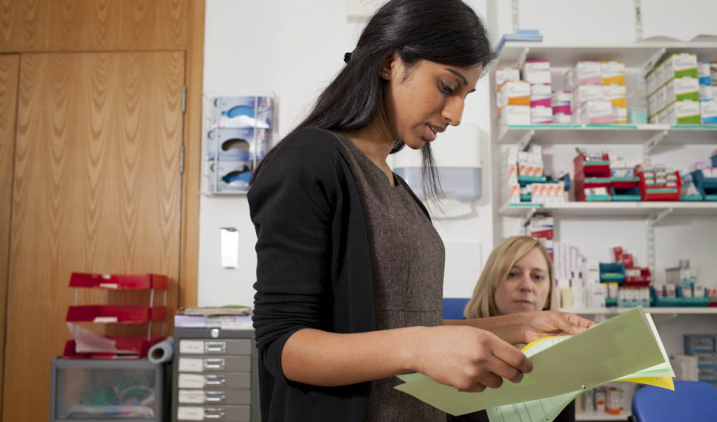Genitourinary medicine
Doctors working in genitourinary medicine diagnose and treat people with sexually transmitted infections (STIs), including HIV.
Your role is to detect and manage, prevent and control STIs, and manage a number of non-infectious genital conditions such as dermatoses.

Life as a doctor in genitourinary medicine
Your time spent in hospital will be on wards caring for HIV patients. You’ll participate in ward rounds and consult with other doctors and nurses. HIV patients often have complex medical problems as well as various psychological challenges.
Bacterial STIs are curable and, while some viral STIs cannot be cured, they can be managed successfully.
- chlamydia
- genital herpes
- genital warts
- gonorrhoea
- syphilis
- HIV
- vaginal infections
- pelvic infection and inflammation
- genital infestations such as scabies and pubic lice
Common procedures and interventions include:
- a sexual screen which may include an examination to take genital microbiological samples
- treatment with the use of specific antimicrobials (agents that kill or inhibit the growth of micro-organisms)
- outpatient minor surgical procedures such as cryocautery (a procedure that uses very high temperatures to treat the female genital tract)
- light microscopy and dark ground microscopy (where the field around the specimen is dark)
- skin biopsies and the insertion and removal of contraceptive devices including contraceptive implants and intra-uterine devices (IUDs)
How much can I earn?
How about the benefits?
- make a difference
- flexible and part-time working
- high income early in your career
- work anywhere in the world
- excellent pension scheme
- good holiday entitlement
- NHS discounts in shops and restaurants
Must-have skills
- excellent communication skills to manage a wide range of relationships with colleagues, and patients and their families
- emotional resilience, a calm temperament and the ability to work well under pressure
- teamwork and the capacity to lead multidisciplinary teams
- problem-solving and diagnostic skills
- outstanding organisational ability and effective decision-making skills
- first-class time and resource management for the benefit of patients
In addition, doctors in genitourinary medicine need to demonstrate:
- an open-minded, sensitive, non-judgemental approach
- tolerance of all patients regardless of age, race, gender or sexuality
- a holistic approach to patient care
Entry requirements
If you already have a degree, you could study for a four-year postgraduate degree in medicine.
Some medical schools look to recruit a mix of students from different backgrounds and geographical areas, so your educational and economic background and family circumstances could be considered as part of your application.
What are my chances of starting a career in genitourinary medicine?
How to become a doctor in genitourinary medicine
Where a career as a doctor in genitourinary medicine can take you
- specialise or conduct research
- teach medical students or postgraduate students in training
- get involved in research at universities, the NHS or private sector